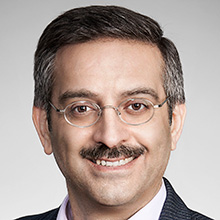China’s Middle Corridor Push Puts Europe in the Slow Lane
 By Elkhan NURIYEV, PhD, Senior Fellow at the Alexander von Humboldt Foundation
By Elkhan NURIYEV, PhD, Senior Fellow at the Alexander von Humboldt Foundation
As Central Asia reshapes Eurasian trade routes, with China and Turkey consolidating influence, Europe faces a strategic test: adapt quickly to stay relevant or risk being sidelined in one of the 21st century’s most consequential connectivity shifts. Since Russia’s invasion of Ukraine, Central Asia has emerged as a critical hub in a reshaped Eurasian trade network. Countries from Kazakhstan to Azerbaijan are diversifying transit routes to reduce dependence on Russia, giving new prominence to the Trans-Caspian International Transport Route (TITR) – better known as the Middle Corridor. This corridor links China to Europe via Central Asia and the South Caucasus, bypassing traditional northern routes through Russia. READ MORE
| Markets